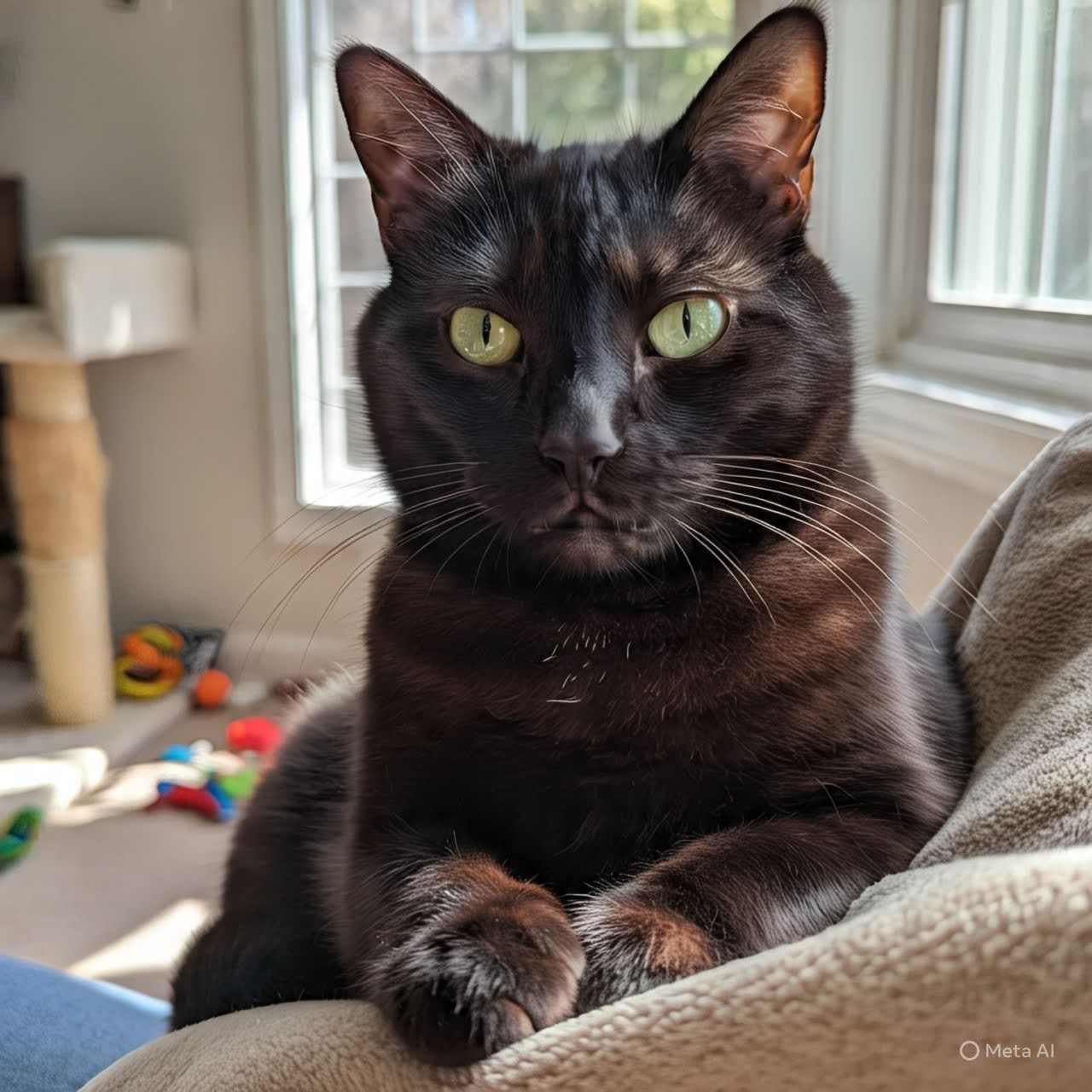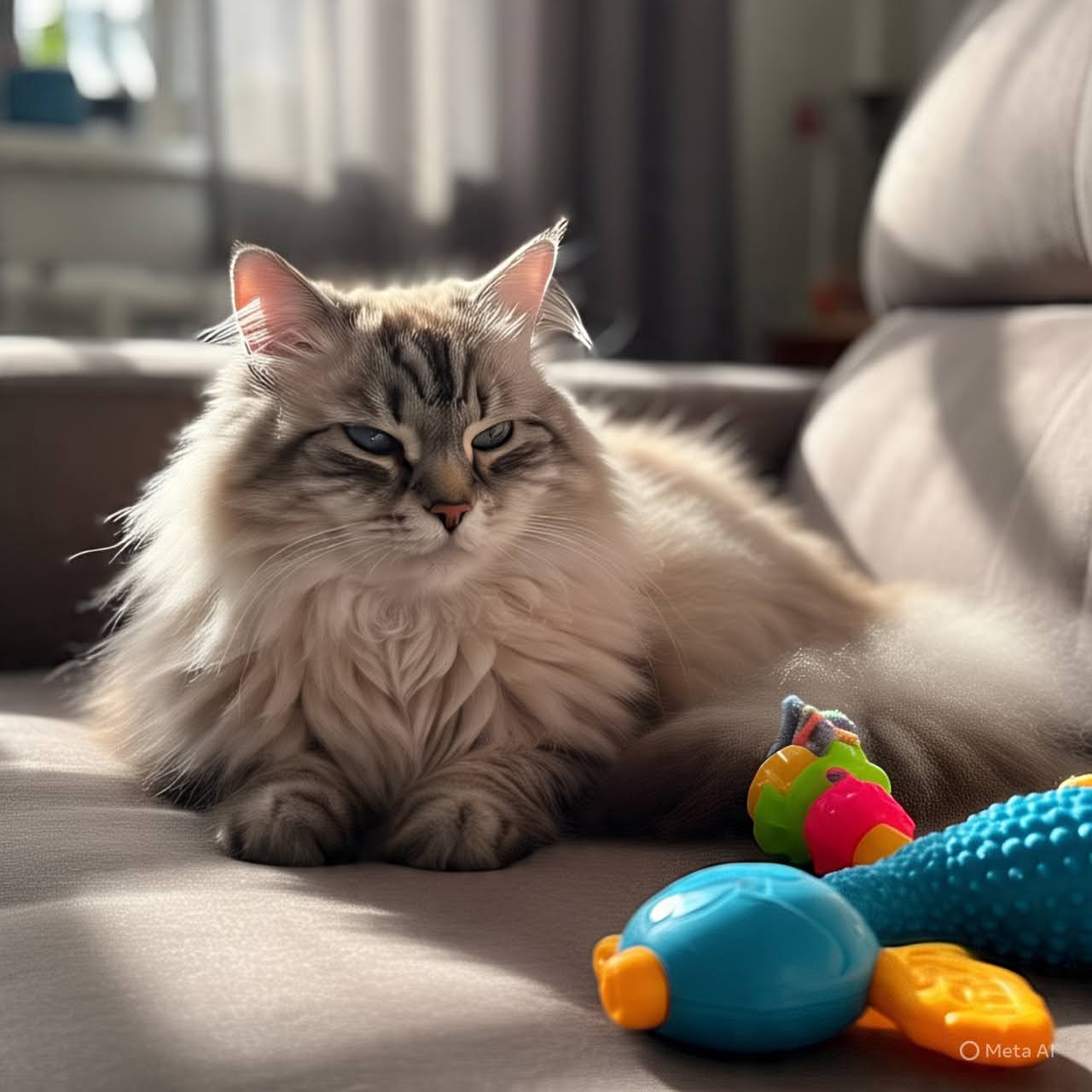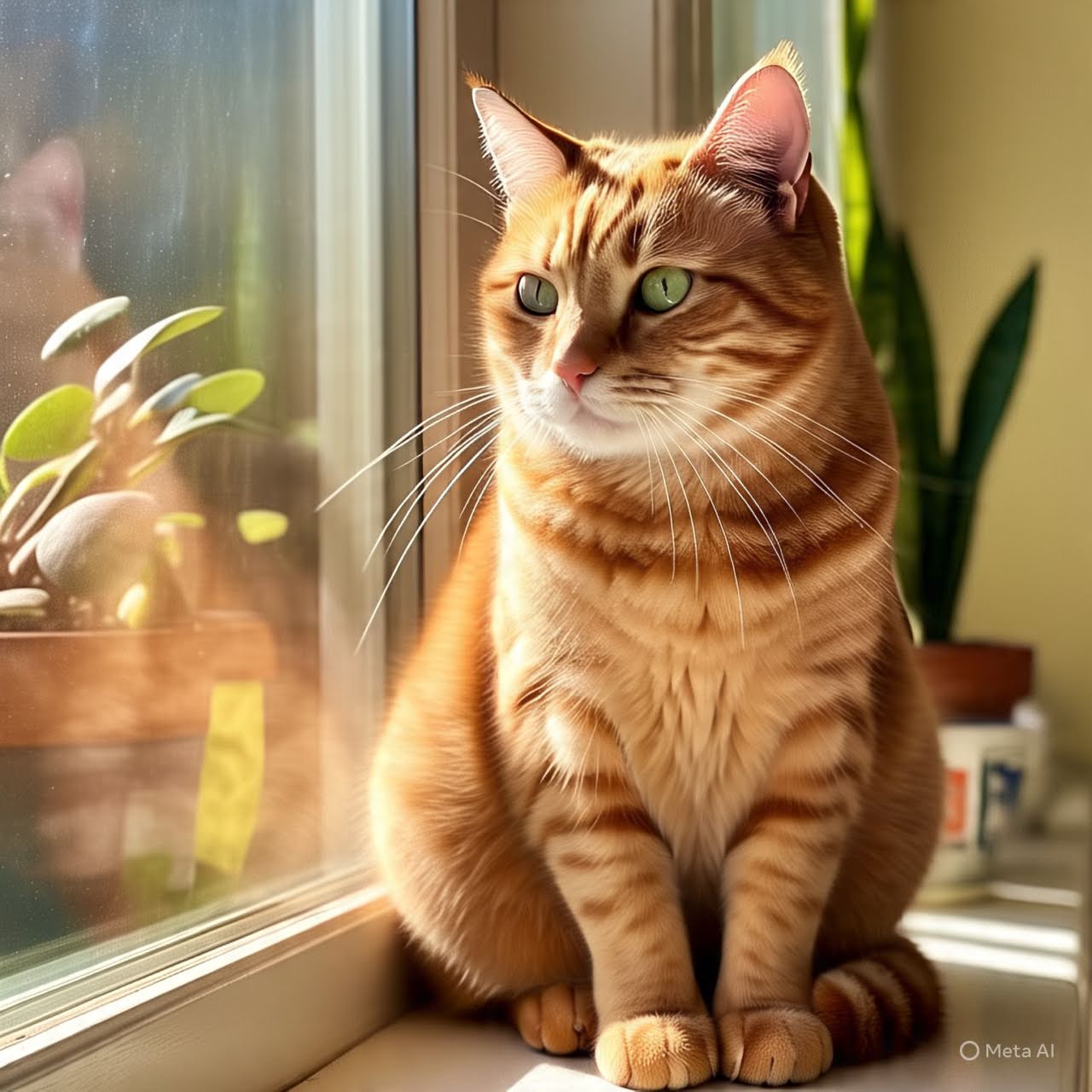Is My Cat Bored? Subtle Signs Your Feline Needs More Stimulation

We all know that cats have a reputation for being independent, but that doesn't mean they don't get bored from time to time. In fact, cats often get bored more than their owners realise, especially if they're indoor-only pets. While your cat may not express their boredom in the same way that dogs do, there are certain, subtle signs that you can look out for that indicate they need more mental stimulation.
Below, we'll take a look at some of the signs that could indicate your cat is getting a bit bored and the various ways you can entertain them. Making sure they are mentally stimulated is the best way to avoid any unwanted feline behaviour.
Behavioural Clues That Your Cat Might Be Bored
Just like us humans, cats need regular mental and physical stimulation to stay happy and healthy. When they're not getting enough attention or can't burn sufficient energy, they can start to express boredom in various ways, which can often be destructive to your home or detrimental to their physical health.
As per the Cats Protection, a stressed cat may overgroom, potentially to the point of causing bald patches, which can occur from a lack of stimulation. Your feline friend may also sleep more than usual or display destructive behaviour such as scratching furniture, knocking items off shelves or chewing on things that they shouldn't.
If your cat is pacing or urinating and defecating around the house (outside of their litter box), it could also mean that they're bored. A sudden rise in meowing, yowling, or crying, especially if it's out of character, might be your cat trying to communicate frustration or restlessness.
While zoomies (spurts of energy) can seem cute, they can also indicate that your cat has excess energy to burn. If your cat frequently runs around throughout the day, it could be a sign that they need a play session to tire them out.
It's important to keep an eye on your cat's behaviour as, aside from boredom, it can also be a sign that your cat has an underlying health condition. Any sudden changes in behaviour, such as low energy, aggression or hiding, can indicate your cat is feeling unwell or is in pain. If you're worried, it's a good idea to contact your vet for help and advice.
Environmental Factors That Contribute to Boredom

Your cat's surroundings play a huge role in their mental and emotional well-being. While a warm bed and regular meals are important, a lack of stimulation in their environment can leave them feeling restless or even depressed. This can eventually lead to physical issues such as weight loss or gain, along with anxiety or compulsive behaviours such as tail chasing and excess grooming.
Most cats love to watch the world go by. If they don't have access to a window perch or an interesting view, they miss out on the mental stimulation that comes from observing birds, people, or passing cars. Meanwhile, a home without cat trees, shelves, or elevated spots can limit your cat's natural instinct to climb and sit up high. Leaving the same few toys out all the time can also cause your cat to lose interest.
While cats like routine, too much repetition with no excitement, such as long periods alone and no play sessions, can lead your cat to get bored and frustrated. Indoor cats are especially prone to boredom if they're confined to just one or two rooms. A lack of new smells, textures, or hiding spots can limit their natural curiosity.
Ways to Keep Your Cat Entertained
Keeping your cat entertained doesn't have to involve complicated games or expensive toys. It's a good idea to regularly rotate your cat's toys to keep things exciting. As per the Blue Cross, a variety of toys, such as feather wands, balls and plush toys, are best so your cat can enjoy playing in different ways. DIY toys such as paper balls and cardboard toilet rolls are also a cheap and effective way to encourage your cat to play. It's a good idea to set aside 10 to 15 minutes each day to play with your beloved pet to help keep them entertained and create a stronger bond. After all, interacting with your cat is all part of the fun of being an owner.
You can turn mealtimes into a mental workout by putting dry and wet food in puzzle feeders to satisfy your cat's hunting instincts. It's also a good idea to offer your cat perches of different heights, whether it's cat trees, shelves or climbing towers, to give your cat opportunities to jump, climb, and explore different views. Yes, they may not match your interior décor, but sharing a home with a cat does have its compromises.
Does My Cat Need a Companion?
While many cats enjoy their independence, some do benefit greatly from having a feline (or even non-feline) friend, especially if they're left alone for long periods or are expressing signs of boredom.
Your cat may appreciate a companion if they have previously lived peacefully with other cats or dogs. If your cat follows you constantly or acts overly clingy, it could also be a sign that your pet would benefit from a companion.
Getting another cat could provide your pet with an instant playmate, which is especially beneficial if your cat is young and energetic. Some cats also enjoy snuggling, grooming, or simply coexisting quietly with another pet, which is great if you're out of the house for long hours at a time.
However, it's worth noting that not all cats bond with other animals and getting another cat could cause them to become stressed, rather than alleviate their boredom, as per Purina.
Keeping Your Cat Happy & Healthy

A happy cat is a healthy cat, and vice versa. While cats are generally low-maintenance compared to some pets, they still need regular care, enrichment, and attention – you don't want to forget about them! Interactive toys, puzzle feeders and play sessions can help encourage your cat's natural hunting instincts and reduce behavioural issues that can be caused by boredom.
You should keep an eye on your cat's behaviour for any changes, as this can be a sign your cat is feeling under the weather. It's a good idea to have pet insurance in case your furry friend needs unexpected treatment or ongoing medical care. Insurers such as Petgevity offer policies for pre-existing health conditions, which can be helpful if you don't already have insurance or are looking to change insurers. Doing your research to find a suitable option can help avoid being unable to cover treatment costs when you need it most.
By checking that your cat is getting enough mental stimulation and being able to spot any changes in their behaviour or appearance, you can help make sure they continue to lead a happy, healthy lifestyle free from boredom.
839GYLCCC1992



Leave a Reply